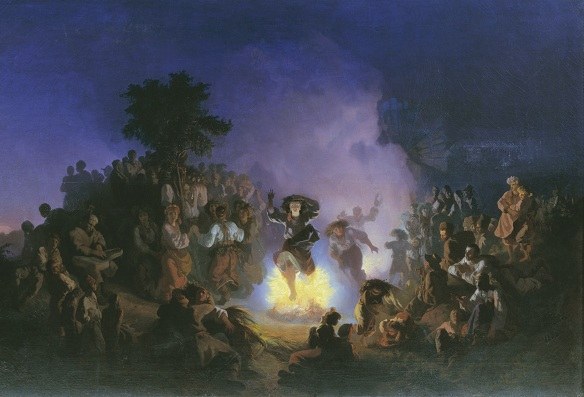Summer solstice
With the arrival of spring becomes evident that the sun rises higher above the horizon at noon, and behind him tonight. Finally, in the early summer shone reaches its highest point - it's the summer solstice. Date of the longest day of the year depends on the hemisphere and leap year. In the Northern hemisphere the summer solstice occurs on 20 June, if the year has 365 days, and 21 June, if 366. And in the southern hemisphere in a leap year the longest day is December 22, and in a normal year - December 21.
After the longest day is the shortest night. According to the old Slavic legends, it was a magical time: the forces of useful plants has increased enormously, vorogushin girls certainly showed up the men. Swim earlier that day was strictly forbidden, as it was believed that the water sit the hell. On the summer solstice the hell out of the water left until the beginning of August, so all day bathed and poured water.
When pagan traditions were pushed away by the Christian, this holiday is called day of John the Baptist. And since John was baptizing by immersion in water - it turned out the day of Ivan Kupala. Planted in the fertile soil of ancient belief, the holiday has taken root and survived as a popular douche.
In the old calendar Midsummer day and Midsummer were the same, but the new style of the festival has shifted to 7 July.
Winter solstice
After the summer solstice the day starts to wane. Gradually the Sun reaches the lowest point. In the Northern hemisphere the shortest day of the year occurs in December 21 or 22, and to the South on 20 or 21 June depending on leap year or not. After the longest night, the countdown begins - now the day begins to arrive before the summer solstice, and then again fall to winter.
The winter solstice was celebrated in primitive communities, when before the long winter people have scored all the cattle that could not feed, and arranged a feast. Later that day received another meaning - the awakening of life. The most famous feast of the solstice - a medieval Yule, the Germanic peoples. In the night, after which the sun begins to rise above, lit bonfires in the fields, blessed the crops and trees, boiled cider.
In Greek mythology the Lord of the underworld Hades was allowed to visit Olympus for only two days a year - for summer and winter solstice.
Later he merged with the celebration of Christmas, adding to the Christian pagan traditions - for example, kissing under the mistletoe.
